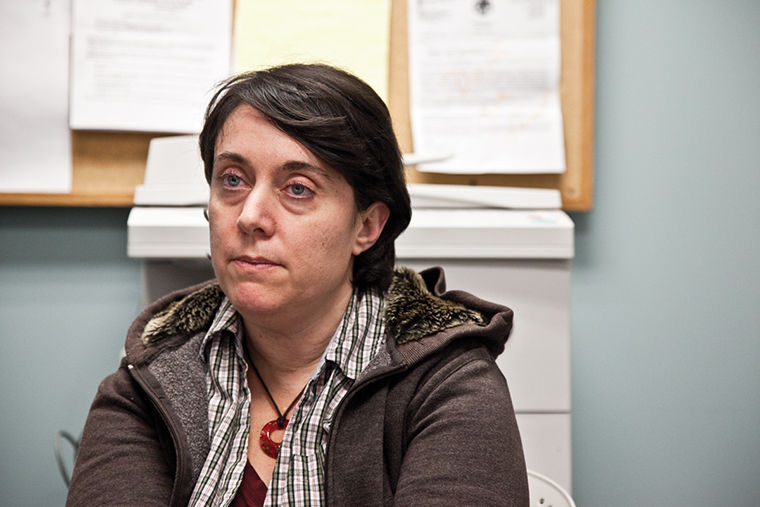Fashion Studies report spurs P-Fac controversy
November 8, 2016

The 2015-2016 Fashion Studies internal review included comments about the department’s demographics and the collective bargaining agreement.
A Fashion Studies Department internal review report sparked anger within the college’s part-time faculty union because of comments noting that the majority of the department is white women older than 50, and that its collective bargaining agreement ignores teaching credentials and impedes diversity.
The Chronicle obtained a complete copy of the 92-page internal review report, which Jeff Schiff, Interim Chair of the Fashion Studies Department, prepared with contributions from 16 other faculty members.
Despite several requests, Schiff could not be reached for comment, as of press time.
Diana Vallera, P-Fac president and adjunct professor in the Photography Department who called the comments “anti-union” and “anti-women” in an Oct. 26 P-Fac press release, told The Chronicle the union obtained the report through an informational request to the college regarding recent curriculum proposals made in the Fashion Studies Department. She added the report was presented to the administration. The college News Office refused to comment if the administration has seen the report.
Under the report’s Diversity section, it states that the “predominantly female student body is almost always taught by white women instructors.”
“It’s all there in black and white: this administration’s derogatory attitude toward women, particularly older women,” Vallera said in the press release. “This report is an insult to our experienced women faculty who have worked so hard over the years to become the best teachers they can be and also stay current with all the developments in their field.”
Following a breakdown of the full-time and part-time faculty’s demographic, which states that the department has 35 female instructors and nine male instructors, three of which are African-American and three Asian, the report states it is “noteworthy, too, that 25 of them are older than 50.”
“…Sentiment is high about diversifying our faculty…Given the de facto hiring freeze and strictures of our collective bargaining agreement, such will likely not come to pass any time soon,” the report states.
Carl Levine, partner at Levy Ratner law firm in New York City who represents part-time faculty at New York University and the New School, New York City, referred to these statements as “troubling.”
“There are some disturbing statements concerning diversity and the suggestion that somehow something should be done to get rid of particular older female employees,” Levine said.
Levine added that blaming the collective bargaining agreement for the alleged lack of diversity or lack of qualifications ignores several issues. The administration has the power to hire and rehire adjuncts based on their qualifications and has had several opportunities to reassess their hiring decisions through evaluations, especially after granting part-time faculty the right to teach multiple courses once they teach a total of 51 credits, as stated in the current contract, Levine said.
“There seems to be a lot of hostility toward the union and the [agreement],” Levine said.
Under the Credentials section, the report states, “Like all departments at Columbia, the Fashion Studies Department is bound by the provisions of the part-time faculty’s CBA, which ignores credentials, in exclusive favor of seniority.”
According to an Oct. 31 statement from college spokeswoman Anjali Julka, the college “strongly disagrees with P-Fac’s attempt to mischaracterize select parts of a robust, departmental self-assessment written by faculty in the Fashion Studies Department.”
The statement also said the self-study report takes a look at the department’s collegewide priorities, as outlined in the Strategic Plan, and includes diverse perspectives from full-time faculty.
Vallera said this report reflects anger toward the contract.
“[Schiff] doesn’t like to follow the [curriculum review] process,” Vallera said. “That’s the problem.”
Although the report does not reflect the entire view of the college because it was drafted by faculty in one department, Levine said the college appears to be defending it.
“The self-study is a conversation and is not a final document,” the college’s statement said. “To suggest that it’s one person’s perspective or that the college endorses such perspectives is deeply inaccurate. Columbia does encourage more thoughtful and informed dialogue around diversity. P-Fac has either misunderstood or willfully distorted the content of the diversity section in the self-study.”
Jacqueline WayneGuite, the department’s collection manager and listed report contributor, said the Fashion Studies Collection feedback was her only contribution.
“I had no input [in] any other component [of] the report,” WayneGuite said, adding that other contributors did not write about diversity. “Most people responded specifically to things that are under their purview.”
Additionally, the statement recognized that the collective bargaining agreement is part of the college’s responsibility when establishing faculty qualifications and assessing part-time faculty.
The report states that part-time faculty members who regularly teach do not hold an advanced degree of any sort.
“Many of them have degrees in areas outside of Fashion Studies; eight of whom earned their highest degree at Columbia; and a few have no degrees at all,” the report said.
Levine added that part-time faculty have limits when continuing professional development.
“It’s not easy for someone who is juggling a living as an adjunct often teaching at multiple institutions to go back and find a way to get an advanced degree,” Levine said.
According to the report, part-time faculty mentorship failure is partly attributed to the adjuncts being “numbed into complacency or sparked into truculence by a collective bargaining agreement that rewards seniority, not excellence.”
Past comments from some administrators, faculty and staff about their dislike for the contract reveal a larger issue, Vallera said. Now that these issues are documented, she said she hopes the administration will discuss them.
“I hope now [the administration] is going to take this seriously and is going to have a conversation,” Vallera said.







